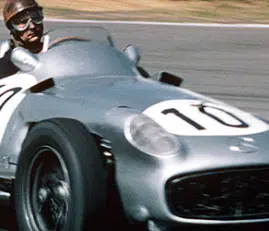2014 F1 World Championship
- 2014
- F1
- F1 World Championship
Four years of Red Bull domination were finally ended by new engine rules which Mercedes-Benz exploited to perfection. The FIA specified 1600cc turbocharged hybrid engines for 2014, complete with complicated energy recovery systems. While this was an important step down the ecological path, the expensive technology placed further financial strain on all but the richest teams, and was criticised for the lack of engine noise. What it did produce was a classic championship head-to-head between team-mates that had raced against each other since childhood.
Mercedes were the team to beat and by a greater margin than imagined before the season. Lewis Hamilton and Nico Rosberg won all-but three of the races but senior management’s decision to not impose team orders set up a classic contest. Rosberg appeared on course for the title before they ran into each other during the Belgian Grand Prix, an incident that earned Rosberg public censure from the team and prompted Hamilton to win the next five GPs. Both entered the final race in Abu Dhabi, curiously worth double points this year, with a chance of the title but it was Hamilton who won for the 11th time to clinch his second world title. Rosberg won five times and out-qualified his team-mate to win the inaugural FIA Pole Position Trophy.
Red Bull-Renault finished as championship runners-up but it was a disappointing final season with the team for Sebastian Vettel. He was comprehensibly outshone by the impressive Daniel Ricciardo who scored all three of the team’s wins. Red Bull was hampered by uncompetitive Renault engines and poor reliability but Riccardo emerged as a true star. That prompted the champion for the last four seasons to look for a new challenge in 2015.
Williams switched to Mercedes-power, attracted Martini sponsorship and provided one of the most welcome stories of 2014. Felipe Massa arrived from Ferrari and qualified on pole position in Austria. Second in Abu Dhabi was one of his three podium finishes but it was Valtteri Bottas who emerged as a class act. The Finn was second in Britain and Germany and third on four occasions as he finished fourth in the championship. Williams-Mercedes returned from relative obscurity to clinch a popular third overall.
In its last year powered by Mercedes, McLaren began with rookie Kevin Magnussen and Jenson Button finishing second and third in Australia to briefly lead the constructors’ standings. However, that was the highlight as they struggled to develop the recalcitrant MP4/29.
Also winless (for the first time since 1993) was Ferrari. Both Stefano Domenicali and then Marco Mattiacci were replaced as Team Principal and President Luca di Montezemolo also moved on at the end of the season. Fernando Alonso challenged for victory in Hungary before finishing second but Kimi Raikkonen finished no higher than fourth and was only 12th in the final points on his return to the team.
Force India benefited from Mercedes-power with Nico Hulkenberg consistently in the points and Sergio Perez third in Bahrain. Daniil Kvyat emerged as rookie of the year with the FIA recognising that achievement for the first time at its end-of-season prize giving. The Russian qualified fifth for his inaugural home race but it was team-mate Jean-Eric Vergne who delivered the bulk of Toro Rosso’s points. Nevertheless, Kvyat’s promise was rewarded with promotion to Red Bull Racing in 2015 while “JEV” was released.
It was tough going at the wrong end of the grid. Sauber failed to score a point for the first time in F1 and the cash-strapped Lotus squad rarely did better. Both Marussia and Caterham had slipped into administration by the end of the season with the former experiencing triumph and despair. Marussia had scored points for the first time when Jules Bianchi finished in a fine ninth place in Monaco. But the Frenchman suffered severe head injuries when he crashed into a support vehicle during the Japanese GP.
The FIA introduced permanent numbers for F1 drivers. While the World Champion had the right to take number one, his rivals chose any number under 100.





